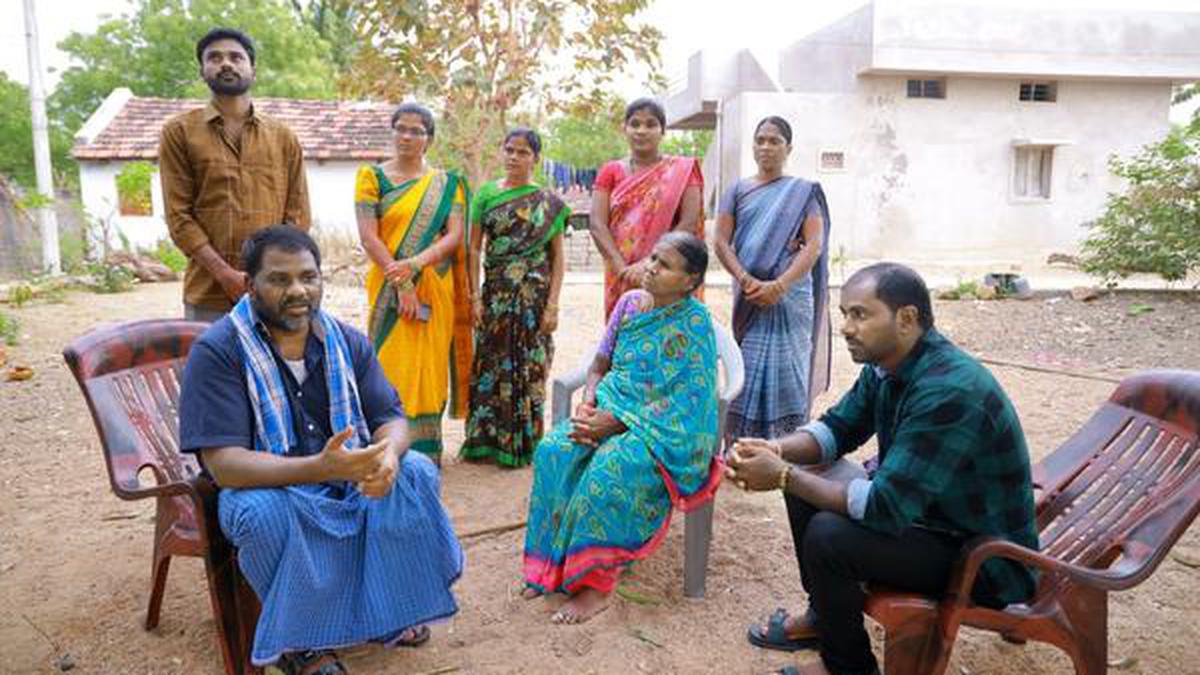
Telangana spotlight: In the gulf of despair Premium
The Hindu
Yellavva waits for husband's return from Dubai jail, highlighting challenges faced by Gulf migrant workers' families.
For close to two decades, Yellavva has been tethered to the anguish of separation, waiting endlessly for the return of her husband, languishing in jail in a foreign country since 2005. The 45-year-old stone cutter from Chandurthi village near Telangana’s temple town of Vemulawada has been leading a hand-to-mouth existence and has single-handedly raised her three children since her husband, Gollem Nampelly, left for Dubai in search of greener pastures.
Fondly known as Nampelly Venkati, the 51-year-old is among five Gulf migrant workers from the erstwhile composite Karimnagar district, who were convicted by a Dubai court and sentenced to 25 years in jail for the death of a Nepali man in the United Arab Emirates (UAE) at the fag end of 2005. Venkati left for Dubai in 2003, nurturing hopes of earning a substantial income to carve out a bright future for his three children — two sons and a daughter. But fate willed otherwise. He used to get a pittance as a construction worker with hardly any savings to send back home.
The other four convicted in the murder case — Shivarathri Mallesh, his brother Shivarathri Ravi, D. Laxman and S. Hanumanthu — were released from prison recently after serving 18 years of their sentence following approval of their mercy petitions by the UAE government. They were repatriated to India last month, paving the way for reunion with their families here.
However, for Yellavva and her children, the wait for Venkati’s return drags on. There is no clarity yet on when he will be released and repatriated to India, she says, breaking into tears.
Yellavva eked out a living by working in a stone quarry after her husband was imprisoned in Dubai. This took a toll on her health as she developed severe back pain and as a result, abandoned the arduous occupation and stared selling corn-on-the-cob at the local bus stand to make both ends meet. She earns barely ₹4,000 per month and is largely dependent on rice supplied through the public distribution system for sustenance. Braving adversity, she performed the wedding of her daughter Radha to a stone cutter of Chintakunta village in Jagtial district of Telangana a couple of years ago.
Yellavva resides in a tile-roofed, single-room house in Chandurthi, the erstwhile Naxal hotbed in the old undivided Karimnagar district, now part of Rajanna Sircilla district, along with her two sons, aged 27 and 23. “Back-breaking poverty and drought-like conditions forced him to leave for Dubai,” she recalls, citing the lack of livelihood opportunities in the once drought-prone region that triggered migration of many unskilled and semi-skilled youth from north Telangana to Gulf countries over the last three decades.
Most of the migrants, however, got caught up in a debt-trap while some landed behind the bars after being cheated by unscrupulous travel agents, who sent them abroad on ‘visit cum employment and tourist visas’, says a resident of Chandurthi, requesting anonymity.











